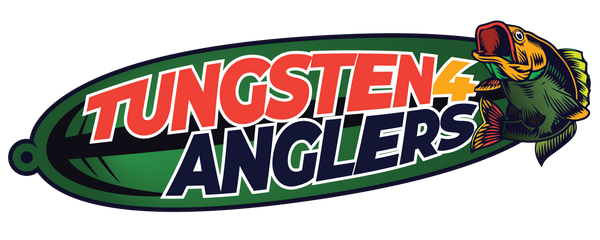Lead vs. Tungsten - Which Should You Choose?
Selecting the right jig for a recreational activity such as fishing. We all know that fishing activity tests the skills and patience of the individual. But knowledge of jigs and selecting the right one is essential. It is necessary to choose the right jig or angler amongst the many varieties of jigs available in the market.
Various materials are suitable for manufacturing jigs . It becomes necessary to know the pros and cons of such jigs before you decide to choose the most suitable one for your fishing requirement
Performance Characteristics
Tungsten vs Lead Density
- The density of tungsten is more than that of lead, making tungsten jigs smaller for the same weight.
- A smaller profile means that tungsten jigs can sink faster and reach deeper waters more quickly.
- Tungsten jigs offer less water resistance, which is crucial when fishing in strong currents or deep waters.
Sensitivity
- The higher density of tungsten makes it more suitable for angling activities because of its sensitivity to water currents.
- Tungsten jigs transmit vibrations more effectively, allowing you to feel even the most subtle bites.
- Heightened sensitivity can make a significant difference, mainly when targeting fish that are wary or in environments where bites are subtle.
Size
- Tungsten wins hands down in density compared to lead, making it more compact.
- Tungsten jigs’ compactness is beneficial in clear water where it is easy to spook fish.
- Since tungsten jigs are smaller, they are less intrusive in water and can appear more natural to fish.
- In contrast , lead jigs are bulkier because of their lower density and are advantageous only for attracting larger fish.
Cost
Since fishing involves a lot of equipment, the costs add up. Many anglers consider the cost factor. Lead jigs are substantially cheaper than tungsten. For anglers who frequently lose jigs to snags and underwater obstacles, the affordability of lead can be a decisive factor.
Tungsten jigs are much more expensive than lead ones. However, many anglers believe the benefits of tungsten justify the higher cost. Tungsten jigs are durable and long-lasting and hence they are preferred for fishing in areas where snags are rare.
Life Span of Jigs
In comparing tungsten vs. lead density, tungsten is the clear winner. Lead, having lower density, is softer and becomes deformed quickly. It also gets more readily damaged compared to tungsten.
When it hits rocks or hard surfaces underwater, a lead jig can dent or lose shape, affecting its performance and longevity.
Tungsten is hard and more durable than lead. Tungsten jigs can withstand impacts better and maintain their shape and performance over time.
This durability means that, despite their higher cost, tungsten jigs can be a more economical choice in the long run due to their extended lifespan.
Tungsten Vs. Steel
While tungsten and lead are predominant in fishing jigs, it’s worth noting that steel is suitable for use in various angling equipment. Like with lead, tungsten is much ahead of steel when compared to tungsten.
Steel jigs are much larger than lead or tungsten jigs of the same weight as steel is less dense than tungsten or lead. It is a disadvantage in sensitivity and performance. Most serious anglers prefer tungsten for fishing.
Environmental Impact
It is essential to consider the environmental impact of your preferred jigs. Lead is toxic and its use in fishing jigs is a growing concern amongst environmentalists. If the lead jig enters the water, it can leach toxins that contaminate aquatic ecosystems. Hence, many Canadian national parks have restrictions on lead jigs and other lead-based fishing gear.
Tungsten, on the other hand, is both non-toxic and environmentally friendly. Since it does not leach toxins, tungsten jigs do not pose the same risks to wildlife or ecosystems. Choosing tungsten jigs and anglers reduces the environmental footprint of recreational fishing activities.
Factors that help to decide between lead and tungsten jigs
When choosing between lead and tungsten jigs, consider
- Your fishing needs
- Your Budget
- Specific environmental preferences
Environmental Impact
Lead jigs are cost-effective and can be ideal for casual anglers. Inexpensive lead jigs are useful and are suitable for fishing in snag-prone areas where you could lose your jig. They leave an impact on the environment.
If you are looking to improve your fishing technique, their lower sensitivity can be disadvantageous.
On the other hand, tungsten jigs have superior sensitivity and are more expensive. They are also more compact and, therefore, easier to pack and fish with.
Moreover, tungsten jigs do not cause serious harm to the environment. If you are an environmentally friendly yet serious angler consider tungsten jigs as must buy and use. They can look forward to an exciting yet environmentally safe fishing experience.
Before you proceed with purchasing jigs, make an informed decision based on this valuable information.
Conclusion
Tungsten jigs are an ideal investment for serious anglers who wish to enhance their fishing experience while being environmentally friendly. We offer a variety of jigs for varied fishing anglers and are happy to help you purchase the most suitable jigs for a memorable fishing experience.
For more information or a free consultation about our varied range of jigs please mail info@tungsten4anglers.com .

